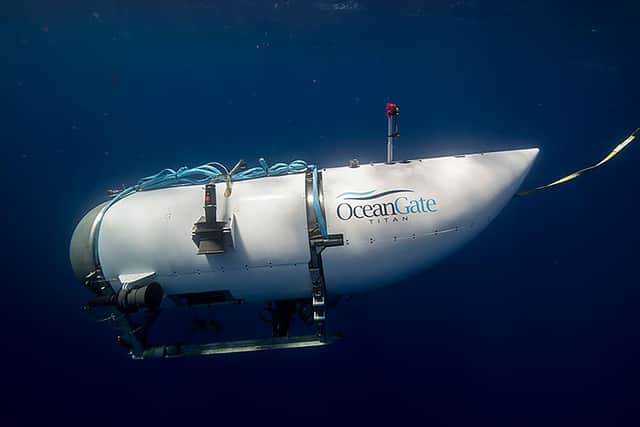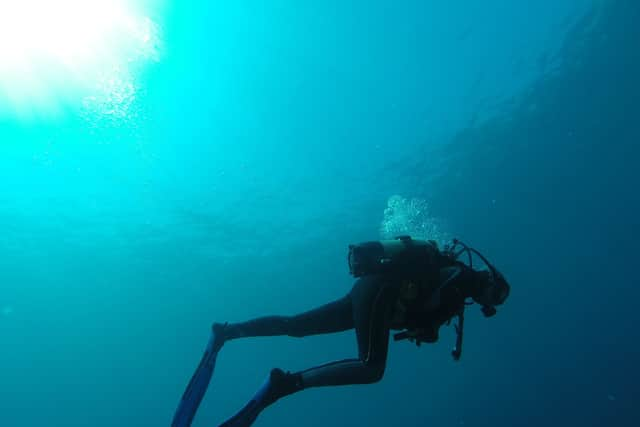Titanic sub: what does implode mean & why do things implode underwater
and live on Freeview channel 276
Tributes have been paid to five men who died after OceanGate’s Titan submersible is thought to have imploded after setting out to explore Titanic wreckage on Sunday (June 18). Three British men, including British billionaire Hamish Harding, British-pakistani Shahzada Dawood and his son Suleman, 19 were killed in the tragedy.
Although the cause of death has not been confirmed, the US Coast Guard confirmed the tail cone of the deep-sea vessel was discovered around 1,600 ft from the bow of the Titanic shipwreck during a press conference in Boston on Thursday (23 June) indicating that the deepwater vessel imploded. Rear Admiral John Mauger said further debris was also found in the North Atlantic Ocean off the coast of Newfoundland that was “consistent with a catastrophic loss of the pressure chamber”.
Advertisement
Hide AdAdvertisement
Hide AdAdmiral Mauger said he could not say what the prospects were of recovering the bodies of those killed on the Titan expedition as he offered his condolences to the families. He said: “Our thoughts are with the families and making sure that they have an understanding as best as we can provide of what happened and begin to find some closure.
“In terms of the large process, we’re going to continue to investigate the site of the debris field and then I know that there’s also a lot of questions about how, why and when did this happen, and so those are questions that we will collect as much information as we can on now, while the governments are meeting and discussing what an investigation of this nature of a casualty might look like.”


As the investigation is underway, we have explored why things implode underwater and what it means.
Why do things implode underwater
Implosions occur due to high underwater pressures which are around 400 greater than at sea level when vessels reach depths of around 1,200 feet in the ocean. Due to the pressure, any damage or defect to the vessel which could then cause a leak would trigger an implosion instantly.
Advertisement
Hide AdAdvertisement
Hide AdStefan Williams, a professor of marine robotics at the University of Sydney told The Guardian “If the pressure vessel has failed catastrophically, it’s like a small bomb going off. The potential is that all the safety devices might be destroyed in the process."
According to the Journal of Physics: Conference Series the implosion would have been almost instantaneous, lasting only milliseconds.
The National Ocean Service website explains that pressure increases the deeper into the ocean you go. “At sea level, the air that surrounds us presses down on our bodies at 14.7 pounds per square inch. You don’t feel it because the fluids in your body are pushing outward with the same force.
“Dive down into the ocean even a few feet, though, and a noticeable change occurs. You can feel an increase of pressure on your eardrums. This is due to an increase in hydrostatic pressure, the force per unit area exerted by a liquid on an object.
Advertisement
Hide AdAdvertisement
Hide Ad“For every 33 feet (10.06 meters) you go down, the pressure increases by one atmosphere.”
However, animals that live in the sea can withstand ‘dramatic pressure changes’ because their bodies are more flexible and their ribs are bound by loose, bendable cartilage, which allows the rib cage to collapse at pressures - however the high pressures could “easily snap human’s bones”.


What does implode mean
According to the Collins Dictionary, implode means ‘it collapses into itself in a sudden and violent way.’It has been described as being the ‘opposite’ of an explosion as pressure erupts from the outside rather than from inside the vessel and out.
